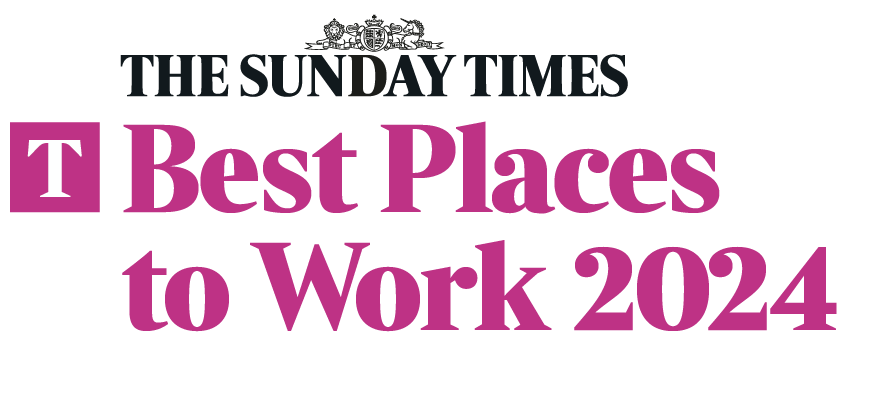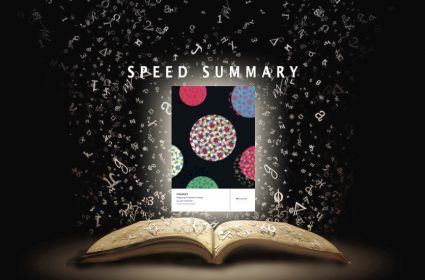Must-Read Books for Brand Leaders

Welcome to 2022!
As we enter the new year, many are focusing on new goals and ambitions for themselves, their brands, and their businesses.
To help you get into your stride, it felt like an appropriate time to revisit the Brand Genetics booklist and cherry-pick a few of our favourites which are especially relevant to the year ahead.
Amidst the ongoing threat of the pandemic and continued digital disruption it is very easy to get distracted by all the changes happening around us! However, sustainable brand growth is more often based on the fundamentals, which do not.
Our selection is designed to help leaders focus on the constancy of human nature in the face of unpredictability and change and capitalise on 2022 by thinking more ‘human-first’.
Not got time to read all 4? Fear not, we have included speed summaries for each one!
For brand storytellers we recommend: SAPIENS
In today’s fast-paced and digitally-driven society, humanity is becoming the new premium and brands cannot afford to be faceless entities. To survive, brands need to think human-first and engage with consumers on a deeper level.
Yuval Noah Harari says that What sets humans apart from other species is our ability to make myths – to use imagination and language to create and communicate new worlds, alternatives, and possibilities. The importance of shared myths is what enabled us to cooperate, organise at scale, and essentially dominate the world.
Brands are Powerful Myths. Take Peugeot as an example, it doesn’t exist in the natural world, instead, it exists as a shared myth or ‘fiction’ in our imagination – and it has the power to move humans to produce and consume at scale.
From a marketing perspective, this would suggest that there is inherent value in brand storytelling. So, moving into 2022 how can brands start sharing the myth behind their brand or create stories that resonate across their communication platforms? The human touch is increasingly scarce and brand recall is scarcer. Storytelling is not only more memorable than facts (up to 22 times more) but it is also more engaging and distinctively human, hardwired into our brains and how we navigate the world
For those looking to build brand trust we recommend: THE WORLD HAPPINESS REPORT
Levels of trust in society are falling as scepticism toward governments, large organisations and brands capitalising on personal data rises. But The World Happiness Report offers compelling evidence that trust is a core driver of human happiness, and marketing effectiveness. The more you can trust the people and organisations around you, the happier you are. You are also more likely to follow their ‘marketing’ requests, such as looking at a new product or wearing masks and social distancing.
Trust is created by the belief that another is competent and caring, and the same rule applies to brands. But Marketing and Marketers, although not rivalling politicians, are one of the least trusted professions.
If the World Happiness Report has anything to teach about brand marketing in 2022, it’s that we need to repair the trust deficit, demonstrating clear competence and care for consumer wellbeing.
For those focused on Brand Growth we recommend: HOW BRANDS GROW
Byron Sharp’s How Brands Grow: What Marketers Don’t Know is a business bestseller that has fast become an absolute must-read for marketers. As the clamour behind brand purpose and meaningful differentiation continues to grow – regardless of your perspective on their utility, ‘How Brands Grow’ is a reminder of the value in evidence-based, mass marketing.
The data tells us that what works in branding is surprisingly simple – making the brand easy to buy – by maximising its physical availability and creating an attractive and memorable set of distinctive brand assets that make the brand easy to like, memorise and recall.
Successful growth brands have universal appeal, and mass market with a reach-optimised single, simple message. Sharp’s argument suggests that targeting and segmenting customers and refining the brand message accordingly, whether based on lifestyle, category usage or brand loyalty is an unnecessary complication.
At Brand Genetics, it is our belief that the one constant is human nature, and our experience in talking with consumers is a constant reminder that we are all more similar than we think. As we move into 2022, consider how brands can tap into our shared needs, motivations and interests to find that killer, universal message, driving appeal and mental availability.
For those wanting to build consumer empathy we recommend: EMPATHY: WHY IT MATTERS, AND HOW TO GET IT
There are concerns that we are currently experiencing an empathy deficit – exasperated by the amount of time we spend on our mobiles and social media. As we move into 2022 there is an added complication to this in the form of the Metaverse and the increasingly significant role it is likely to play in consumers lives.
In Roman Krznaric fascinating book, he summarises a decade of research into the art, science and practice of empathy – our ability to step into the shoes of another person and see the world through their eyes.
Our ability to empathise with others is a core driver of human social connection and wellbeing. Without empathy we would not feel the bond of common humanity that can motivate us to care for and help others and the more we care about other people, the more likely we are to be happy ourselves. Empathy evolved to flow in face-to-face situations, as a form of automatic non-verbal communication. As the presence of the online world grows – there is an opportunity for brands to add an authentically human touch that is currently lacking in digital experiences.
Brands, like Nestlé Toll House, have discovered that using digital customer service personnel that react and respond in a human-like way doubles the amount of time people spend interacting with them online.
As brands grapple with how to operate online and within the Metaverse, a key consideration will be how they can avoid feeling transactional by creating consumer experiences which feel authentically human and mimic face-to-face communication.
SUMMARY:
- Brands can harness the uniquely human ability to make powerful myths which bind us together, via authentic, engaging storytelling
- Brands can gain trust by demonstrating their competence and care – in turn delivering greater happiness
- Business should tap into our shared needs, motivations, and interests to drive mass marketing efforts and create brands that have universal appeal
- All brands, digital or otherwise should not forget the importance of consumer empathy and look to add a human touch to all experiences.
These insights can help your businesses or brands to think more human-first heading into a year where understanding the consumer will be more important than ever. For further support, advice and direction on how to deliver brand growth, do get in touch!
Now all that’s left to say is Happy New Year and best of luck in 2022!




